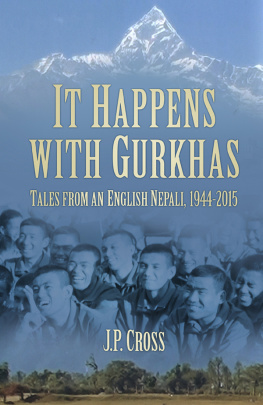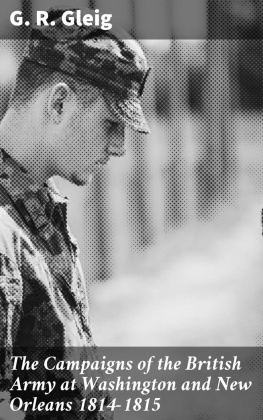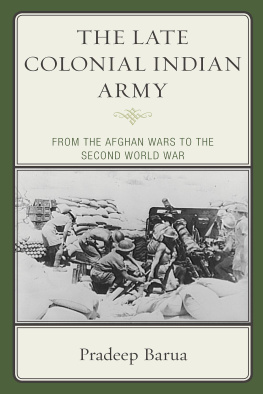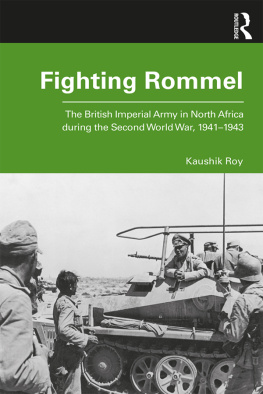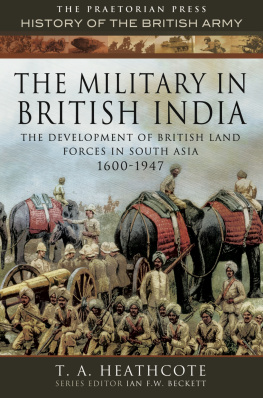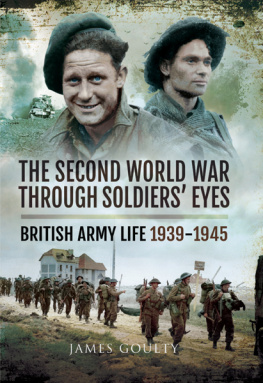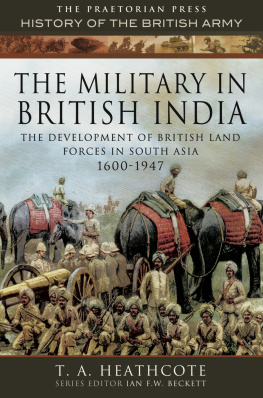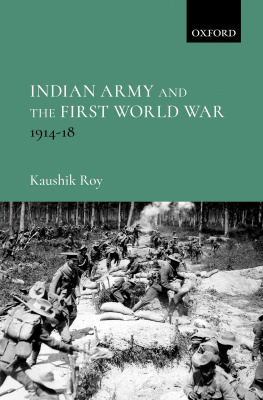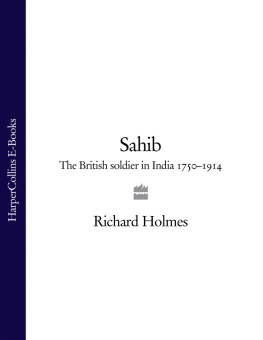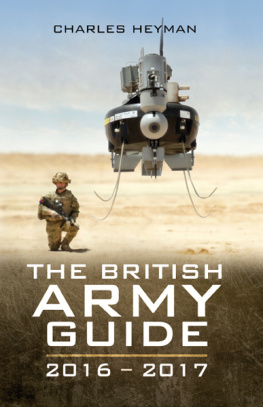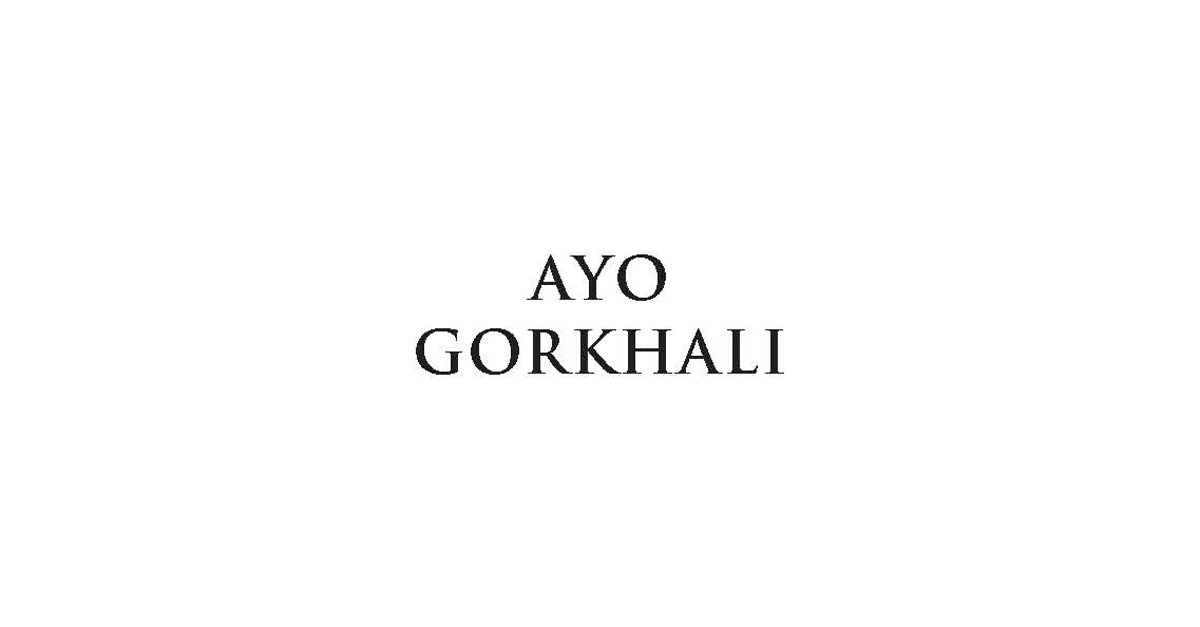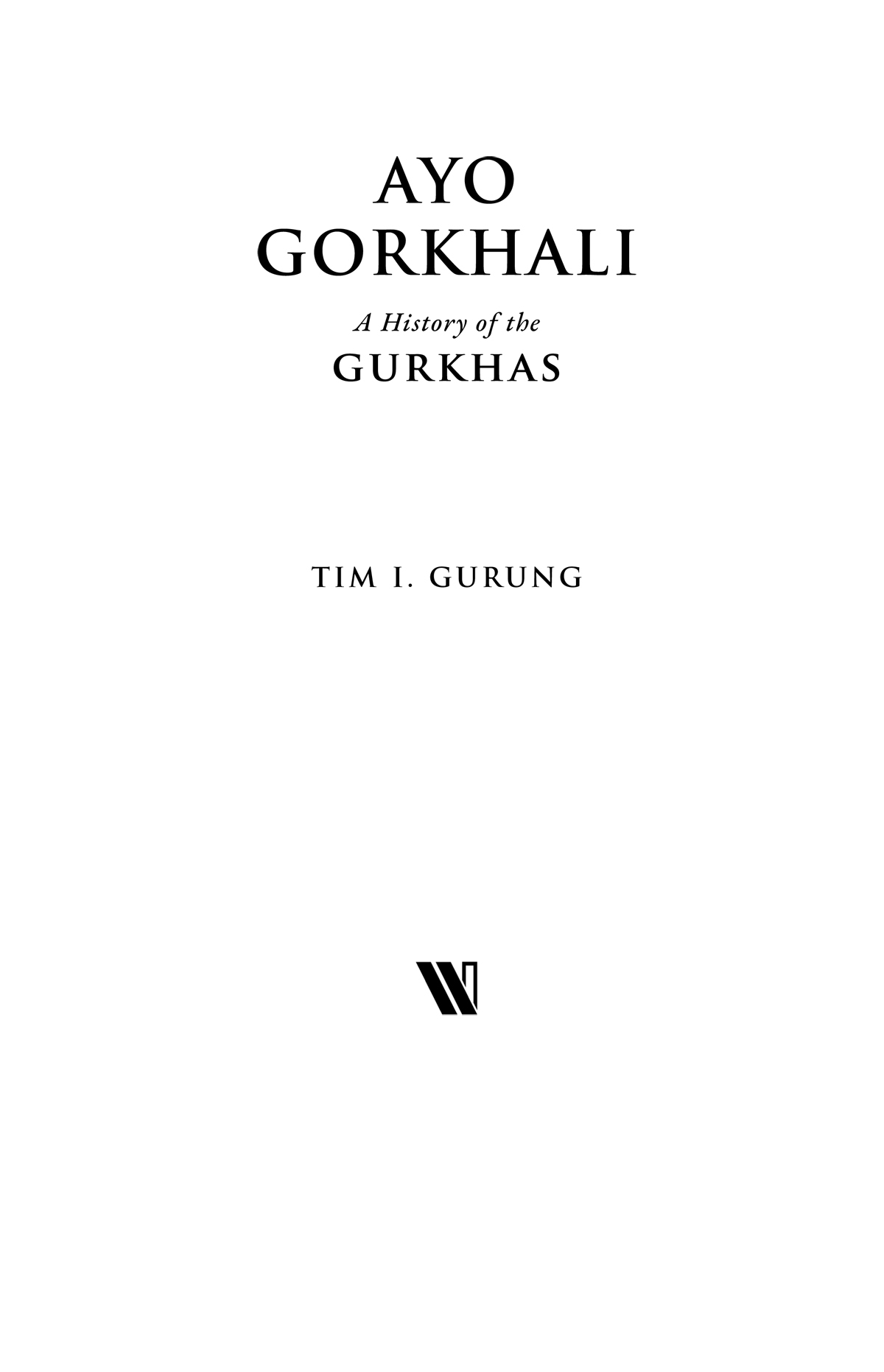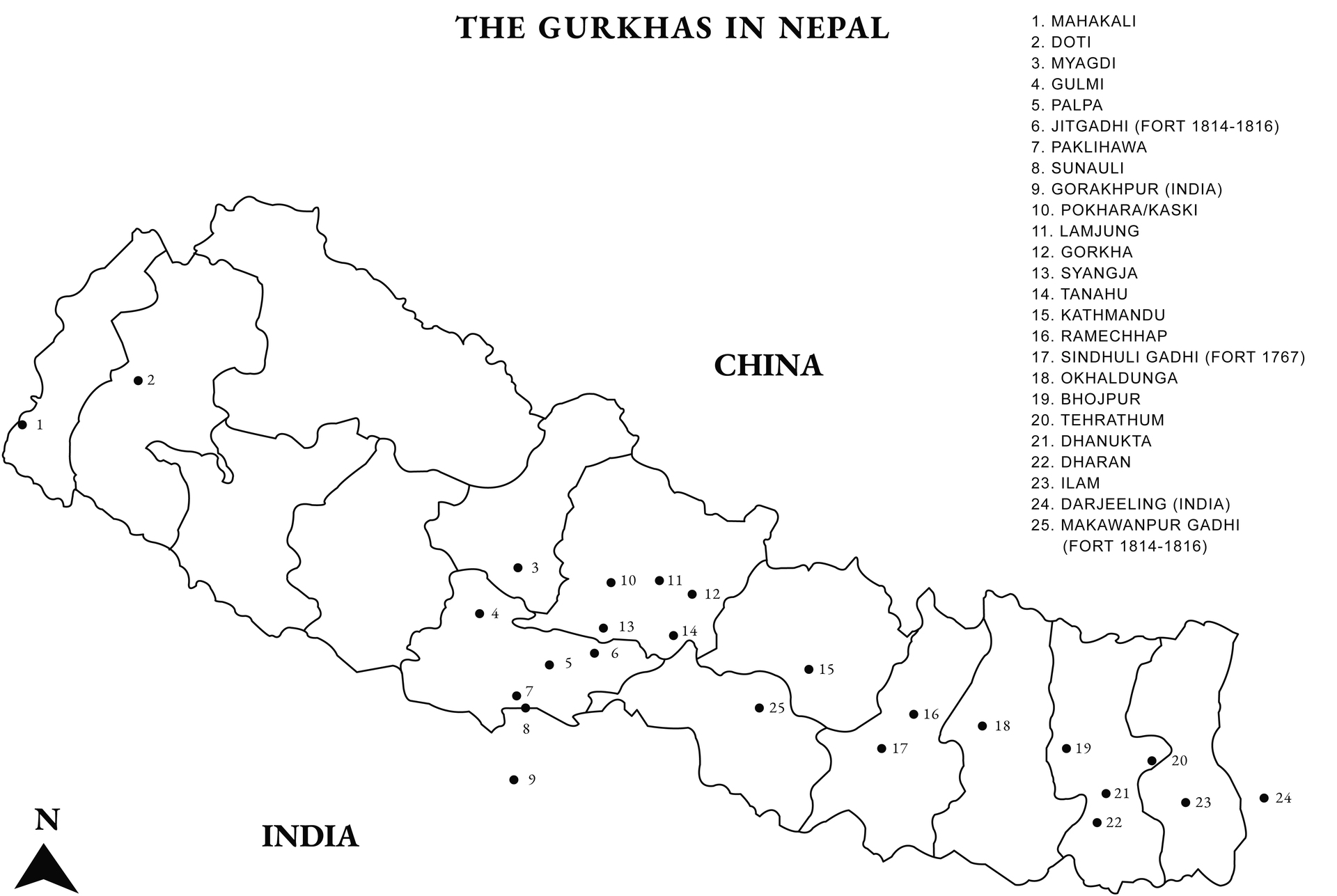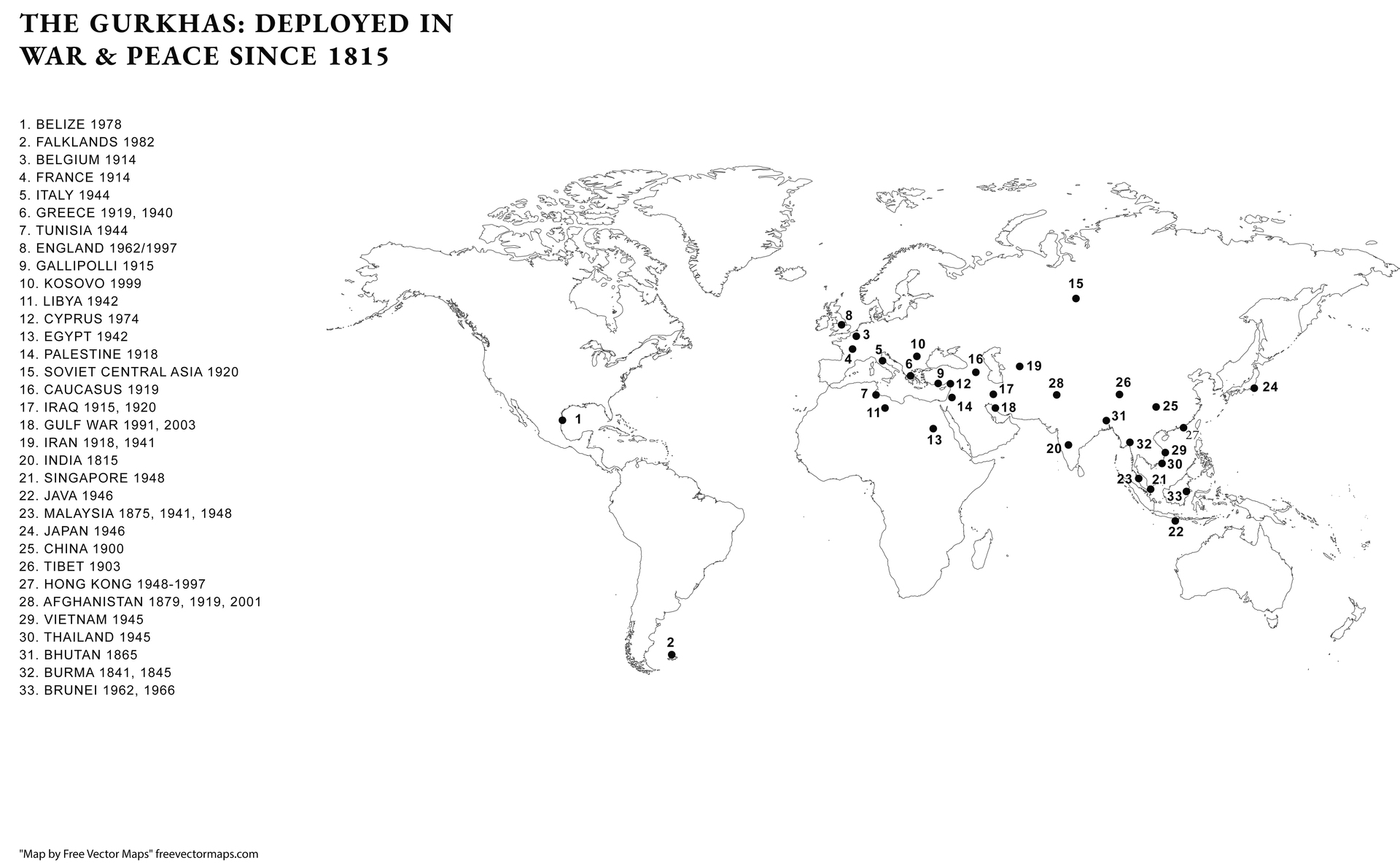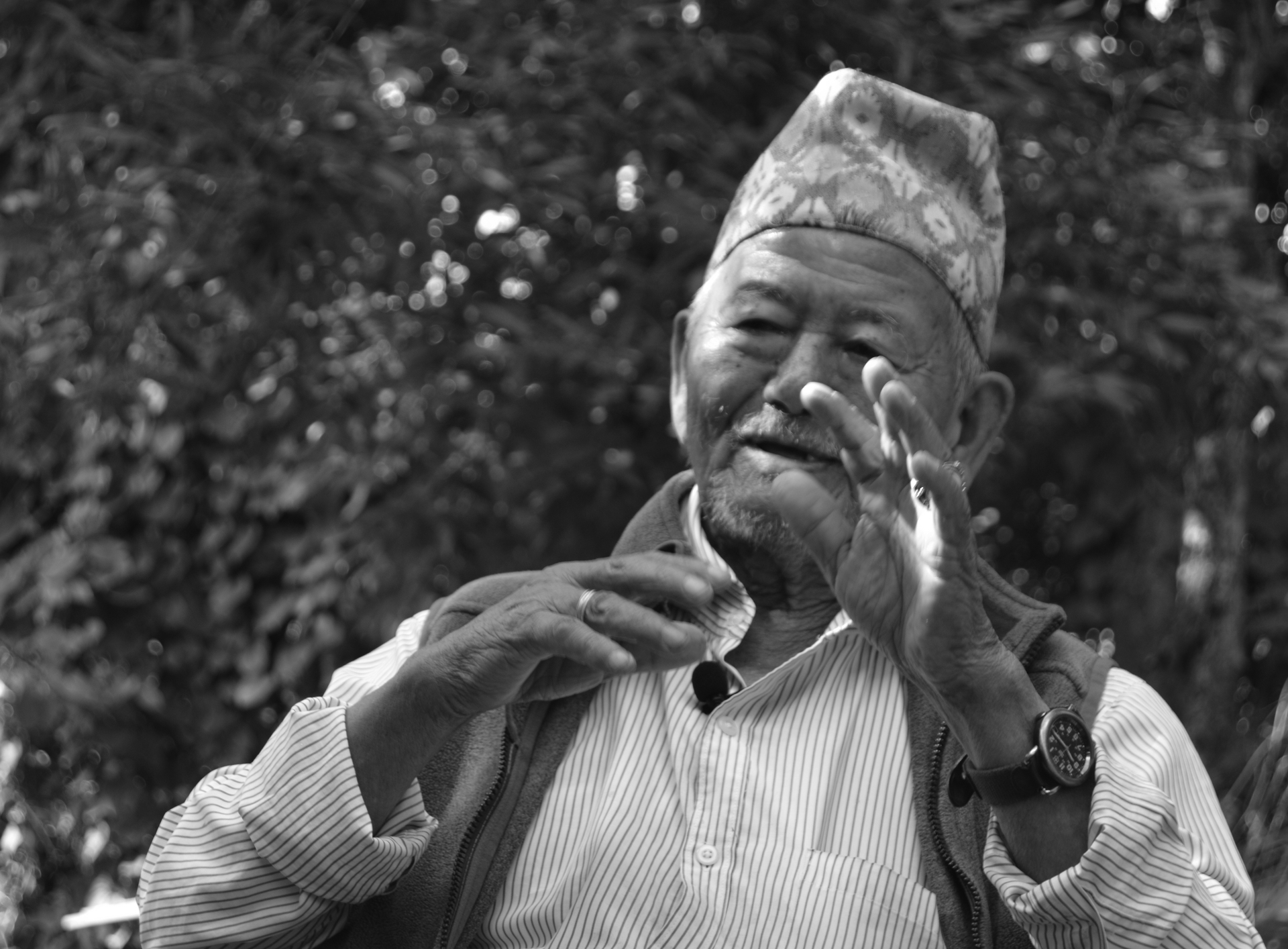First published by Westland Publications Private Limited in 2020
1st Floor, A Block, East Wing, Plot No. 40, SP Infocity, Dr MGR Salai, Perungudi, Kandanchavadi, Chennai 600096
Westland and the Westland logo are trademarks of Westland Publications Private Limited, or its affiliates.
Copyright Tim I. Gurung, 2020
ISBN: 9789389648706
The views and opinions expressed in this work are the authors own and the facts are as reported by him, and the publisher is in no way liable for the same.
All rights reserved
No part of this book may be reproduced, or stored in a retrieval system, or transmitted in any form or by any means, electronic, mechanical, photocopying, recording, or otherwise, without express written permission of the publisher.
In memory of, and with respect to, those brave Gurkhas who sacrificed their precious today for our tomorrows.
Rifleman Karna Bahadur Rai/Dewan 1/10th GRa WW II veteran, ninety-nine-years-oldfrom Ilam, East Nepal, who saw action in Burma. With no pension, he joined the police force as an instructor and later became a farmer.
I prayed to Bhagawati Mai for my safe return. She heard my prayers, and I did a big pooja after my safe return. It feels just like yesterday but so many years have passed. The saddest part of life today is that all of my friends from the old army days are gone.
I t was in late 2016 that I decided to write a book about the Gurkhas. Initially, I had a straightforward idea of how the book should be written. I thought I would primarily include the main events, such as the beginning of the Gurkha story, the main wars that the Gurkhas had fought, the countries they had served in and close the book with details of their present status. For this task, I would give myself a year-and-a-half: one year for the research and six months for the actual writing. I was quite confident of finishing the book by mid-2018.
Being a Gurkha myself, with a Gurung surname who are said to belong to the so-called martial races, would give enough authenticity to my work, I thought. But I was wrong. Whether it was my ignorance or complacency, I couldnt say for sure, but one thing was clear. By ignoring the most crucial factor in writing, I was about to make one of the gravest mistakes of my writing career. I was not planning to write the book for the readers but for myself. In short, I was too nave and taking the subject matter too lightly.
What I didnt realise then was the significance of my subject matter. I was shortsighted, if not foolish, which was evident the moment I started working on the book. The more I researched the subject, the more I wanted to know. Before too long, I was so into the subject matter that I hardly had time for anything else. I spent the whole year of 2017 in my research by visiting more than half-a-dozen nations, talking with many people, reading almost three dozen books, watching numerous videos and documentaries, and reading as many articles as I could find on the internet. An institution that had lasted for more than 200 years and was still going strong as I write cannot be taken lightly and trying to depict it otherwise would have not only been unwise but would also be disgraceful for me as a writer.
Besides, I had spent a whole month travelling from the east to the west of Nepal covering more than twenty-five districts considered the hotbeds of Gurkha recruiting, and meeting almost a hundred Gurkha veterans during the trip, especially those who had fought in the Second World War (WW II). We were extremely fortunate to find them still around and healthy enough to be able to share their stories. Being able to include their stories before they could have been lost has been the greatest achievement of that visit.
By the end of 2017, the research had overwhelmed and humbled me in such a way that it left me with only two options. Either I needed to give this project my best and try and write a decent Gurkha book or do nothing at all. I chose the first option, and the result is in your hands.
However, there was one thing that I already knew well before I started research and that hasnt changed a bit, even now. All the books regarding the Gurkhas so far have been mostly written from the Western point of view and mainly by writers with military backgrounds. No matter how much objectivity they may have claimed, in the end, it still ended up seeming somewhat one-sided. They mostly repeated the same two things again and again in all books. One was the bravery of the Gurkhas, and the other was the self-aggrandisement on the part of the British officers that had played a part in making the Gurkhas world-famous. Their romanticised portrayals sounded almost like a myth. Recently, there have been some new Gurkha books written by Nepali authors. But they lack the military dynamics, as well as international perspectives, and are somewhat politically motivated.
The other side of the Gurkha story is unfortunately still not being told. Those who could have done so didnt, and the Gurkhas havent so far written anything themselves.
As a result, many stories, especially from the First and Second World Wars were buried with them, leaving a large vacuum on their side of the story. The Gurkhas are only known as the bravest soldiers to the world, while the fact that they were also humans like the rest of us is often forgotten. The Gurkha story also has two sides, and until both sides of the story are told and heard, the story will be incomplete. The Gurkha story is not only about bravery alone, but its also the story of tragedy, which is what this book is all about: that other side of the story.
To make it a complete Gurkha book and an easy read, I have divided the book into two parts. The first part repeats the history of the Gurkhas as many books have already done before, and the latter part covers the consequences of that very history. The Gurkhas were not only brave soldiers, but also victims, perennially and systematically betrayed by not only the British but also by their own government, and the only reason why nobody has talked about it is that everybody has forgotten about them. History can be forgiven but not forgotten. That people didnt talk about it doesnt mean it didnt happen, and the truth does always prevail at the end, including in the case of the Gurkhas history.
Because of my origins, cynicism might surface at times. Its quite understandable that I might be biased towards my people, the Gurkhas. But I am all about truth. I didnt write this book to please some and offend others. I have researched every detail to make sure that everything in the book is accurate to the best of my knowledge.
The other reason why I wanted to write this book was somewhat personal. My family, my village and the whole region to which I belong are all about Gurkhas. It is not only our way of life but also our destiny, and we live and breathe Gurkhas as a whole community. Our region, the Pokhara Valley and its surroundings, are considered one of the hotbeds of Gurkha recruiting in Western Nepal, and there is hardly a single household in those Gurung villages that have no connection with the Gurkhas. As an ex-Gurkha, a Gurung and an author, the responsibility was on me, and I just had to do itnot only write a Gurkha book but also write a complete one, so that none of my readers will have to look further again. As I always write for a reason, being able to write a Gurkha book for our people is undoubtedly one of the proudest moments of my career, and I sincerely hope that I have done a decent job.



